fundraising, Maciel died a victim of false accusations, a conspiracy that duped Pope Benedict.
To bedrock followers, Nuestro Padre -- Our Father -- as they refer to Maciel, was a saint.
He nominated his mother for canonization (to date, without success). In 1992, he told a Legionary priest at a canonization ceremony in Rome: “Wait 30 years before you begin my process” for sainthood.
Between these poles -- a falsely-accused saint, or predator dripping hubris -- roamed a double life, shaped by wealth and propaganda.
Born in 1920 into a prominent family with four uncles as bishops, Maciel was expelled from two seminaries for reasons that have never been explained.
He became a priest only when one of his uncles (not Guizar, the future saint) ordained him after private studies. Recruiting boys in the late 1940s from families whose parents remembered the religious persecution, and saw the priesthood as a path to distinction, Maciel secured scholarships for his seminarians in Spain from the Franco government. “We were like an army, the army of Jesus Christ,” recalled Alejandro Espinosa, the author of a searing memoir, El Legionario, a best-seller in Mexico.
By the 1950s Maciel had a seminary in Rome. Cultivating wealthy supporters, he also built Our Lady of Guadalupe Basilica in Rome, honoring Mexico’s patron saint. But in 1956 Pope Pius XII removed him as the Legion’s director when Maciel was hospitalized for morphine addiction.
Seminarians who had taken vows never to speak ill of Maciel defended him in a Vatican investigation into his secret life. Says Juan Vaca, now a psychology professor in Long Island, N.Y.: “I lied.” From age 12 to 24, Vaca, in what he termed a twisted psychosexual relationship with Maciel, “loved the figure of the founder, the priest … not the predator.”
Another victim, Jose Barba, now a college professor in Mexico City said: “We all lied.” Barba earned a doctorate in Latin American studies at Harvard after leaving the Legion in 1962. “I said simply that he was a saint … as I had been taught.”
In the interregnum between Pius XII’s death and the election of Pope John XXIII, Cardinal Clemente Micara, the vicar of Rome, re-instated Maciel, although under Vatican rules he lacked the authority to do so.
Defended by his victims, Maciel had a protective wall in the secret vows the boys took never to criticize any superior. A Legion mantra, “lost vocation, sure damnation” sent certain of his victims into therapy in later life. The early victims reconnected with one another slowly, over many years.
Maciel went on to build seminaries, prep schools and several universities in Mexico, Spain, Chile, Italy and the United States. Students were taught that Nuestro Padre was a living saint, chosen by God to lead a rejuvenation of the church. Each year on March 20 children acted in skits honoring his life.
In 1996, Hartford Courant reporter Gerald Renner wrote a story on the Legion’s purchase of the National Catholic Register newspaper, and found not a single reference to Maciel in press reports. The Legion’s U.S. headquarters had been in Orange, Conn., for 30 years. Officials shunned Renner. Maciel had orchestrated information about his life and organization via Legion schools, newsletters, and, later, Web sites. After Renner’s article, several ex-seminarians called him, complaining of dictatorial tactics that drove them out of the Legion.
By then, Arturo Jurado, Mexican by birth, a teacher at the U.S. Defense Languages Institute in Monterrey, Calif., had contacted this writer after reading my 1992 book Lead Us Not Into Temptation, an investigation of the clerical sex abuse scandal. Claiming that Maciel had repeatedly abused him as a seminarian in Rome, Jurado put me in touch with seven other men who gave sworn statements echoing his. Juan Vaca included a detailed letter about Maciel he had sent to Pope John Paul II in 1989.
Until then, I had never heard of Maciel. One summer day in 1996 a call came from Gerald Renner, wondering if I knew anything about the Legionaries. Soon after, the Courant hired me as a freelance writer for a joint assignment with Renner.
We had eight men on the record with in-depth accounts of Maciel and well-corroborated information on a ninth victim, who had died. These dignified professionals included a Spanish priest, Felix Alarcon, serving in Florida.
When Renner contacted the Legion to interview Maciel, a Washington law firm, Kirkland and Ellis, responded with statements from Legion supporters purporting to show Maciel’s innocence. The Legion alleged a “conspiracy” by the accusers, but lacked serious proof. Despite legal threats, the Courant published a story on Feb. 23, 1997. The report drew immediate attacks from Legion supporters and a letter of self-defense from Maciel.
The Vatican was silent in response to interview requests. In fall 1998, Jurado and Barba traveled to Rome and filed the canon law case. For several years, it seemed the case was doomed to gather dust.
In 2002, The Boston Globe’s investigation of Cardinal Bernard Law for sheltering abusive priests ignited a chain reaction of media reports in the United States and other countries.
In April 2002, John Paul summoned American cardinals to a special meeting about the crisis.
In November 2004, about the same time an ailing John Paul celebrated Maciel’s career in a ceremony, Ratzinger, perhaps realizing the Maciel case would haunt whoever the next pope might be, ordered Msgr. Charles Scicluna, Promoter of Justice for the Congregation for the Doctrine of the Faith, to reopen the case against the Legion founder.
It is unclear how the order, which claims 700 priests and 2,500 seminarians, will move forward after Maciel’s death, since its spirituality is rooted in Maciel's life and words, a life now known to be deeply conflicted.
The Legion never admitted Maciel’s guilt. Like Christ before Pilate, runs the order’s story line, Maciel refused to defend himself. After the 2006 punishment, he accepted his “new cross” with “tranquility of conscience.”
Until 2006, the Legion promoted his outright innocence on its Web site with testimonials by Fr. Richard John Neuhaus, writer George Weigel, former drug czar William Bennett, Harvard Law professor Mary Ann Glendon, Catholic League president William Donahue, among others, alongside the order’s rebuttal of the victims and denunciations of Renner and me.
After the 2006 decision, those materials disappeared from the Web site. History was erased. The Web site still contains numerous articles about Maciel’s achievements. His history is their history, and can’t all be airbrushed.
The Legion cultivates celebrities. Former CNN religion reporter Delia Gallagher joined Bennett in speaking at the Legion’s fall 2007 fundraiser. Jeb Bush spoke at the Legion’s summer 2007 conference in Atlanta.
Benedict has ordered the Legion to stop requiring the secret vows. NCR has learned that witnesses have given Scicluna new material on Legion inner workings.
A new set of Legion lawyers recently filed suit in Alexandria, Va., against a http://www.regainnetwork.org/ a Web site run by ex-Legionaries, accusing them of conspiracy to damage the Legion’s ministry, essentially the same charge leveled against Maciel’s sex abuse victims, only now in an expensive legal arena.
The Legion demanded the return from Regain of its constitutions, which include the now-invalidated secret vows that Maciel had once dictated and that were posted anonymously on Regain’s discussion board. The lawsuit has entered the discovery phase, demanding names of those who posted information and the computer files of Regain founder Paul Lennon.
Maciel promoted a militant spirituality to save the church from a corrupt world and used the secret vows to shield his double life. The Legion is now waging a legal battle to keep that shield in place.
Jason Berry is coauthor, with Gerald Renner, of Vows of Silence, a book about Maciel. He has directed a forthcoming documentary film, based on the book.
Abonneren op:
Reacties posten (Atom)
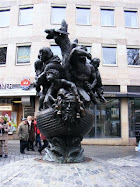
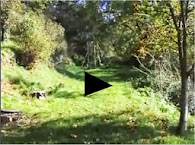
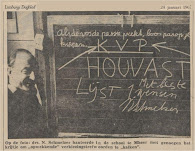

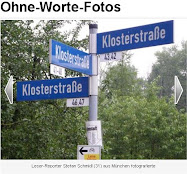
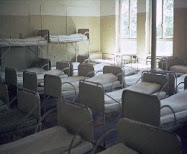






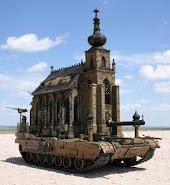



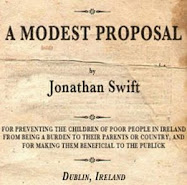


Geen opmerkingen:
Een reactie posten